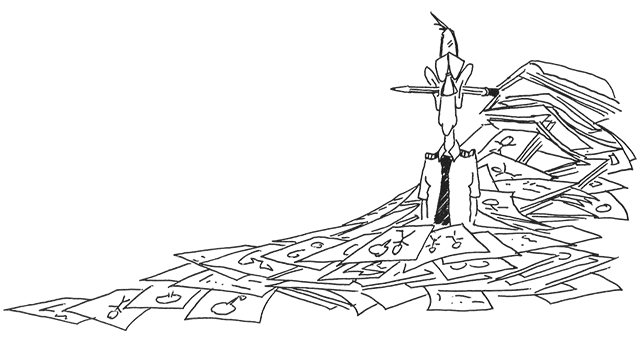Ernest K. Gann’s memoir, “Fate Is the Hunter,” is an aviation classic for a reason, it chronicles Gann’s nineteen years as a commercial pilot back in the fledgling days of aviation when you were never certain you would walk away from the flight, and it does so in a way that captivates you every step of the way. I consider it aviation poetry.
— James Albright

Updated:
2024-03-11
Those of us who fly professionally stand on the shoulders of commercial aviators from the days of flying mail or passengers on aircraft poorly suited to the task at hand. It was a dangerous profession that somehow attracted aviators, drawn to the danger, the adventure, or perhaps to the need to be in on something historic as that history was being made. Ernest Gann captures that sense in his prologue:
“This is not a war story – and yet it is. Any tale which the protagonists are so seriously threatened they may lose their lives demands an enemy capable of destruction. The difference between what is told here and familiar war is that the designated adversary always remains inhuman, frequently marches in mystery and rarely takes prisoners. Furthermore, armistice is inconceivable and so is complete victory for either side. This war continues as you read these words and must prevail so long as man insists on striving for progress.”
I’ve read Fate is the Hunter many times and my copy is filled with PostIt notes for sections I like to reference in my own writing. You can download it as a PDF for free from several websites, but I think it is well worth having a copy for your aviation library.
I think I can pay my highest tribute by simply extracting some of my favorite parts.
Copilots
“Beattie, who is much the better educated of us, can say such things in that way. His dignity is innate. Without any apparent intent, he can sometimes make you feel the fool. Now he contains himself, which is another proof of his intelligence, for he is still flying below the salt. He is not exactly mortal. Existing in a sort of purgatory, he waits with all the patience he can muster for the day when he will no longer be a co-pilot. Until then he must mind his manners, ever balancing the obedient against the obsequious, salving his pride and temper only in his most hidden thoughts. For a number of reasons, not the least of which is his eventual promotion to a captaincy, he must observe the code of master and apprentice. The rules are fixed and catholic. I am, in all eventualities, supposed to know more than he does, a theory we both secretly recognize as preposterous.”
Day one training with an airline
“You are supposed to know how to fly or you would not be here. You will now learn to fly all over again. Our way. I have examined your logbooks. They contain some interesting and clever lies. If you are lucky and work a good solid eighteen hours a day in this school, it is barely possible that a few of you may succeed in actually going out on the line—that is, if the company is still in such desperate need of pilots that it will hire anybody who wears wings in his lapel and walks slowly past the front door.”
Line Numbers
“All airline pilots are subject to the high cock-o-lorum of seniority, whether they like it or not. The system was established to banish favoritism and to provide some basis for assignment of bases, routes, flights, and pay. Its great fault, as in any seniority system, is the absolutely necessary premise that all men are equal in ability. The dullard and the genius must both live with the ostrich philosophy that one man can fly as skillfully as another. No one, of course, maintains this to be a truth. But the seniority system must ever persist if only because it is a protection of the weak, who are everywhere in the greatest number.”
Rebuke after retracting gear too soon
“If you ever do that again, I’ll cut you out of my will.”
Courage
“ . . . should you inquire of a line pilot if he has ever been afraid, his answer is bound to be ‘All the time.’ Which is another distortion of the truth. Yet the tenor of such replies should repudiate those envious cynics who always hasten to label courage a virtue of indifferent value. Line pilots do not live in an atmosphere of heroism, for that is a very temporary condition better suited to wildly inspired moments in which the hero hardly knows what he is doing. The pilots know what they are doing, right or wrong, always. They wear courage like a comfortable belt, rarely giving it a thought. But a line pilot is wary all of the time, which is an entirely different matter. To be continuously aware you must know what to be wary of, and this sustained attitude can come only from experience. Learning the nature and potentialities of the countless hazards is like walking near quicksand.”
Paper charts
“In a few minutes we will have flown off and beyond the reaches of this intriguing chart. I begin to fold it, satisfied that it will be followed by many others equally pleasing.”
Navigation
“Tetterton roused himself from his couch of parachutes and watched while I devoted myself to the books and charts on the navigation table. Twice he asked if I knew what I was about and I answered him shortly, for my confidence was as fragile and demure as the bubble in the octant. This was the first time I had attempted to plot a position from the stars that would really count. My wits, dulled by lack of sleep and the irreconcilable sensation that we were flying in a homeless balloon, deserted me again and again until I nearly despaired of my arithmetical errors. But at last I sorted them out and, cheating only a little, brought the three lines representing the stars observed into a reasonably small triangle. ‘There,’ I said, pointing with a flourish at the intersection, ‘is where we are. Or were, when I started all this.’"
Saying no
“When we reported rumpled and unshaven for the return flight to New York, I found a total of fifty-six passengers crammed into the aircraft. The agent explained that their total weight was very little. And I explained with heat to match the morning's that the total number of life jackets aboard was forty-four and that in the event of an emergency I had no intention of sacrificing my own jacket to anyone, regardless of their weight or appeal. The agent said I was a cruel man. He could not possibly bring himself to remove passengers whose hearts were yearning for bountiful residence in New York. I gave my weary opinion of his sentiments in gutter Spanish. The resulting impasse prevailed for about an hour, after which the agent grudgingly complied.”
Retiring
“When we had climbed through the rain and found the stars, when comfortably on course at last, there would be relatively little to engage our thoughts. Then, perhaps, in the passing hours, Hennessy might touch upon the matter either directly or obtusely. He might massage his nose in a sly fashion and, eyes twinkling, confide in me. ‘All I want is another ten years of this—no more. Then I'm headed for a cabin in the mountains . . . permanent-like.’"
“When we were almost halfway betwixt Wake Island and Honolulu, the same region in which Word would eventually meet his end, I went back to the crew compartment for a cup of coffee. The jug was on a shelf adjacent to the washbasin. Over the basin there was a mirror. Now, holding a paper cup to the coffee spigot, I could not avoid the specter in the mirror which I reluctantly recognized as my own face. It was too old a face for a co-pilot and it more than ever resembled the canvas flight bag now resting on the lower bunk. I turned to examine the bag and saw more clearly than ever before how punishment by weather from the arctic to the desert and the rotten air of the tropics had given it a look of utter resignation. The handle was calloused and limp, and the leather of its underside smudged black with the flesh oil of my hand. At one end of the handle the steel ring had cut halfway through the leather. I had been waiting for it to give way at my next hoist, but so far it had always held. There was a tear in the canvas where it rounded to form the bottom of the bag, and I knew this wound would never heal. And the strap which should hold the two containing halves together had vanished long ago. Both rumpled and dumpy faces of the bag were stained and spotted with the residue of a thousand floors, greasy airport ramps, conveyance trucks, and filthy flight decks. I was sorry about the bag, for I loved it. I was even sorrier we were beginning to look so much alike. And since I had never been able to develop any interest in an orange grove or a mushroom cave, I wondered how much longer such a sad bag would be my official residence.”
Finally . . .
This is my favorite quote in the book because it reminds me about lost comrades and my responsibilities as an aviator:
“We are being paid to avoid hazard, but there are still many unexplored crevasses in our reservoir of knowledge. Our zeal for air transport is always soured when we so easily reflect on failures involving certain late comrades, who proved in the final analysis to be, like ourselves, only the tip of the arrow. We are obliged to recognize our possible epitaph—His end was abrupt.”

